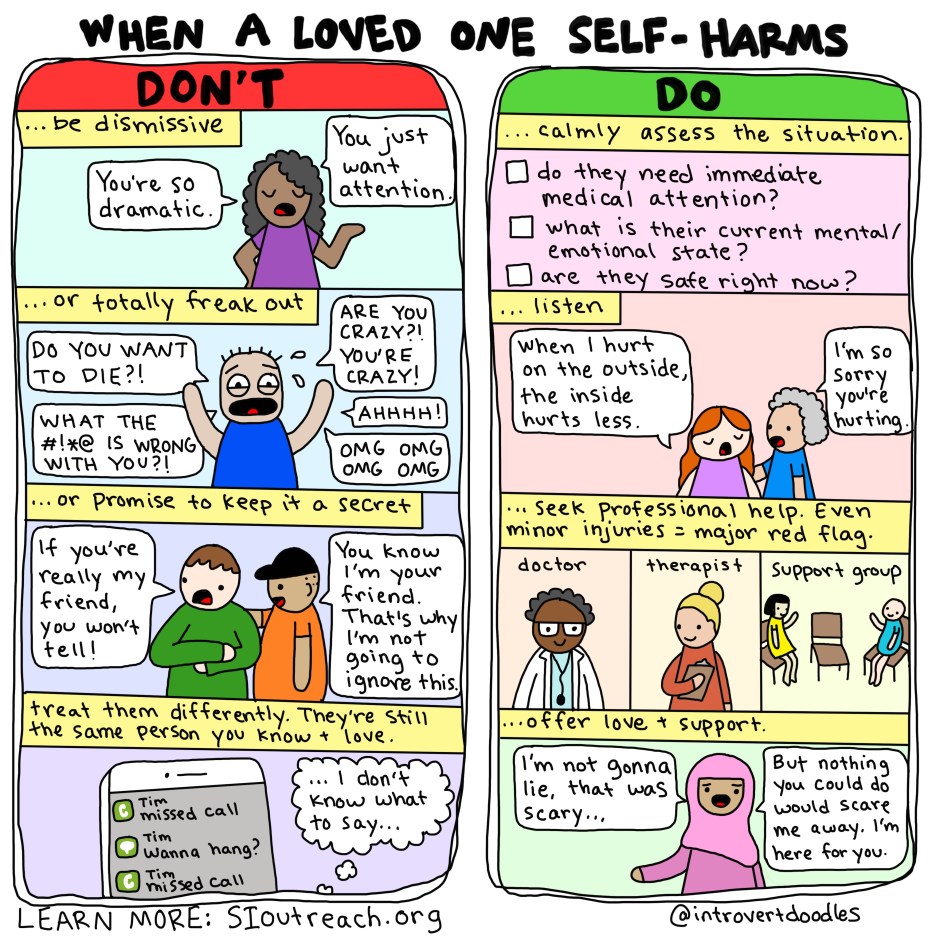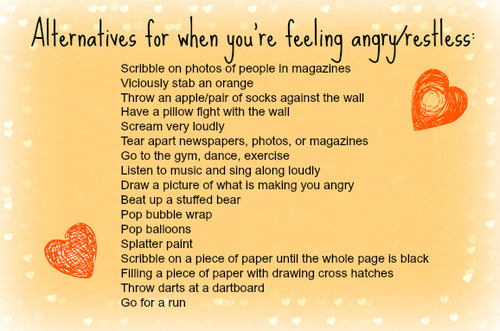September is National Suicide Prevention Month. Within this month are Suicide Prevention Week from September 5-11, and World Suicide Prevention Day on September 10. With suicide being the tenth leading cause of death in the United States (second among 10-34 year old persons, and fourth for 35-44 year old persons), we need to be more vigilant about improving general mental health, and provide support to one another.
Suicide is not an easy topic to discuss, especially because many people feel that they may accidentally say the wrong thing, push their friend or loved one into hurting themselves, or may implant the suggestion of suicide, but this just isn’t true. Suicidal thinking is isolative, and knowing that someone loves and supports you nonjudgmentally often is just the support someone needs to hang in there, and seek some help.
There are many notable signs, like in the graphic above, that someone may display when they are dealing with suicidal thinking. Suicide is also not a spontaneous action, rather, people who attempt or consider attempting to kill themselves have thought about it for some time. There is a spectrum of consideration for suicide, and when someone has decided to carry out an attempt, they appear more at peace because the anxiety of contending with their pain feels like it’s over. Even then, it is not too late. If you see someone suffering, offer your ear. Compassionate connection is the gateway to addressing pain and trauma, moving a person away from potentially ending his/her/their life.
Some local and national resources include:
- National Suicide Prevention Lifeline:
- PRS Crisis Link Hotline (Northern Virginia):
- Available 24/7
- 703-527-4077 or text CONNECT to 85511
- 711 (Deaf or hard of hearing)
- Crisis Text Line:
- Available 24/7
- Text HOME to 741741
- The Trevor Project (LGBT):
- Available 24/7
- 1-866-488-7386
- Text START to 678678
- TrevorCHAT
- Community Services Board (for crisis intervention, emergency evaluation and aftercare)
- Available 24/7, ask for an Emergency Services clinician
- City of Alexandria, 703-746-3401
- Arlington County, 703-228-5160
- Fairfax-Falls Church Counties, 703-573-5679
- Loudoun County, 703-777-0320
- Prince William County, 703-792-4900 (Woodbridge), 703-792-7800 (Manassas)
- Rappahannock Area, 540-373-6876 (Caroline, King George, Stafford and Spotsylvania Counties, and the City of Fredericksburg)
- Rappahannock-Rapidan Area, 540-825-5656 (Fauquier and Culpeper Counties)
Join us in the effort to prevent suicide for all, and check out the #bethe1to campaign!
“Even the darkest night will end, and the sun will rise.”
Sources:
https://afsp.org/suicide-statistics/
https://www.nimh.nih.gov/health/statistics/suicide

























